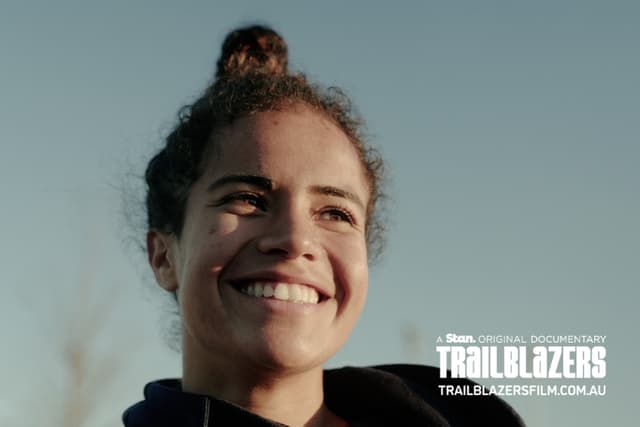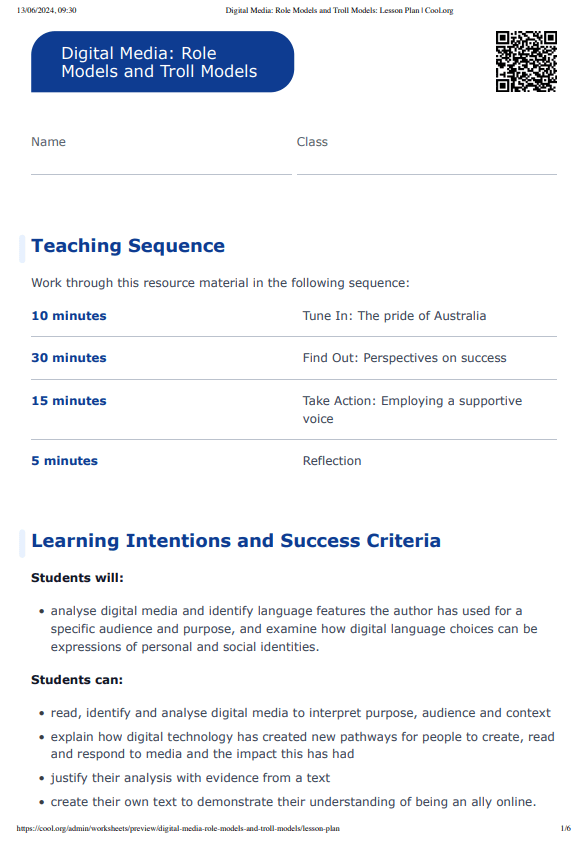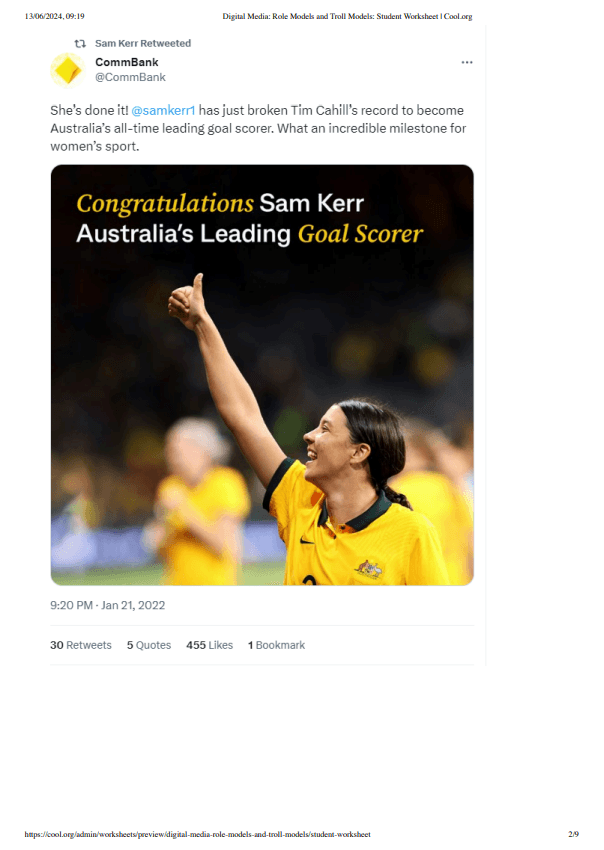Learning intentions:
Students will...
- analyse digital media and identify language features the author has used for a specific audience and purpose, and examine how digital language choices can be expressions of personal and social identities.
Success criteria:
Students can...
- read, identify and analyse digital media to interpret purpose, audience and context
- explain how digital technology has created new pathways for people to create, read and respond to media and the impact this has had
- justify their analysis with evidence from a text
- create their own text to demonstrate their understanding of being an ally online.


